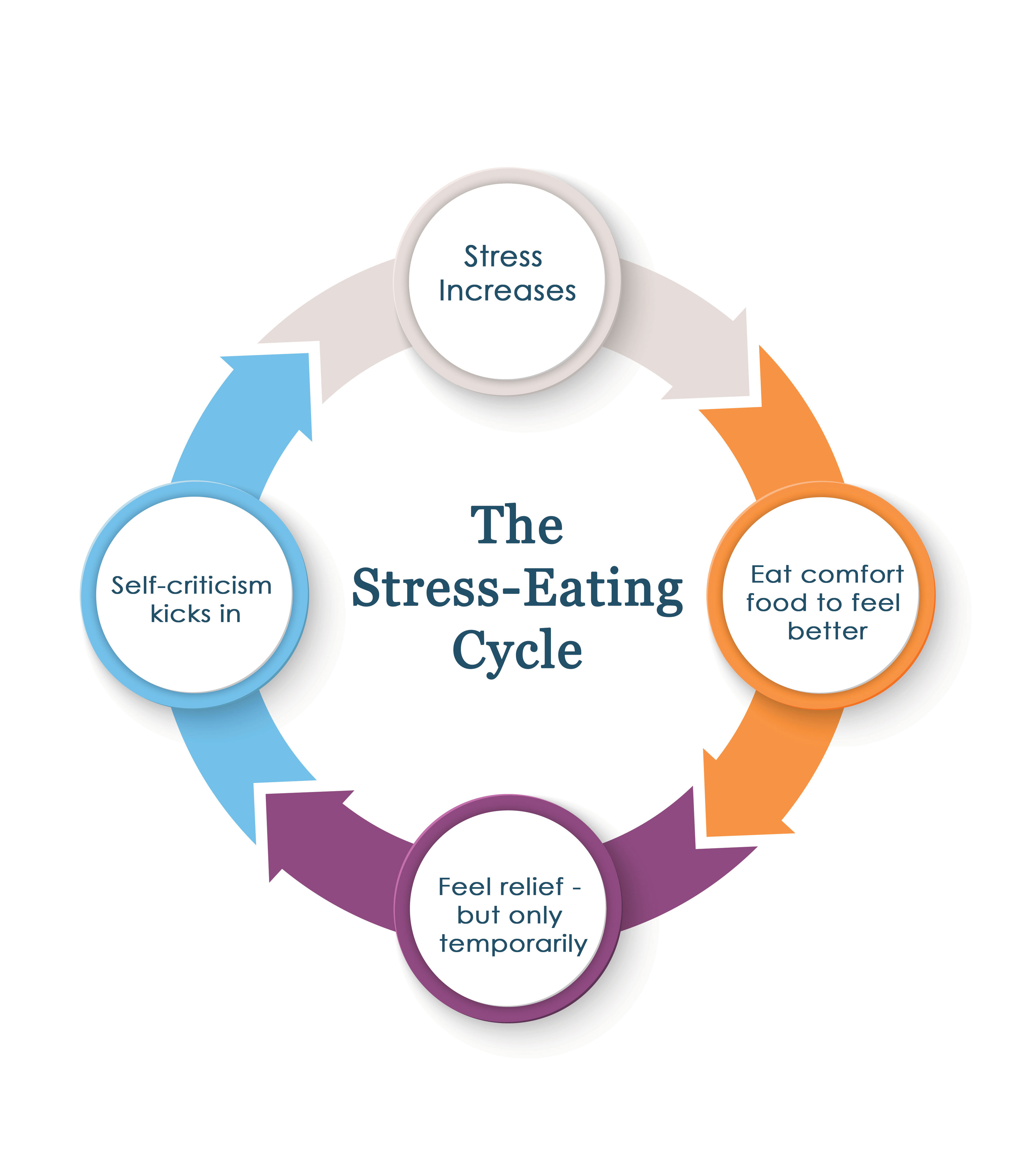
Most of us have had the experience: stress builds, we grab comfort food, and for a little while we feel better. Then the stress returns—often with guilt or self-criticism—and the cycle starts over. This isn’t a failure of willpower. It’s how the brain and body are wired for survival.
Stress Triggers Cortisol
When we’re stressed, cortisol rises. This hormone sends a signal to the body to find fuel now. It’s useful in real danger, but in everyday stress it still pushes us to seek quick energy.
Cortisol shifts the body toward craving calorie-dense foods—think sugar and fat—that once meant survival.
📌 Cortisol’s Job
Short bursts of cortisol are healthy. The trouble comes when it stays high, driving cravings and narrowing choices.
Why Eating Helps – Especially Comfort Foods
The very act of chewing and digesting activates the body’s “rest and digest” mode and calms the nervous system.
Anticipating high-calorie “survival foods” boosts dopamine, which counteracts the stress response and creates relief even before the first bite. Dopamine also reinforces the memory that food brought comfort, making the brain more likely to repeat the behavior next time.
When we’re stressed, we tend to revert back to what is familiar. If chips or a brownie have worked have worked before, your brain steers you back there automatically. It’s the path of least resistance.
Palatable foods also trigger serotonin and endorphins, which increase a sense of calm and safety and help balance cortisol’s effects. Chips are strongly linked with comfort and the message of “safety”; salad, not so much.
Chips deliver a fast dopamine surge that fades quickly, which is why finishing the bag feels so easy. Salad’s slower, subtler serotonin effect can’t compete with that quick hit.
📌 Short-lived Relief
The dopamine spike fades quickly, while cortisol rises again. The brain learns that comfort food = relief and can keep us stuck in a loop and can create a stress-eating habit.
Self-Criticism Makes It Worse
Many people respond with thoughts like, ‘I blew it again.’ Neuroscience shows that self-criticism activates the same brain circuits as punishment or humiliation. Your brain reacts as though you’re under attack. The stress response intensifies, cortisol rises again, and the cycle continues—often driving you back to the very behavior you were trying to escape.
📌 Self-Criticism = Threat
Brain imaging shows rejection, humiliation, and harsh self-talk all activate the same pain and threat circuits. To your brain, self-criticism feels like being attacked.
Key Takeaways
Stress eating isn’t a sign of weakness or lack of willpower. It’s the result of survival wiring combined with learned habits. Once you understand the loop, you can begin to interrupt it and choose healthier ways to find comfort and relief.
